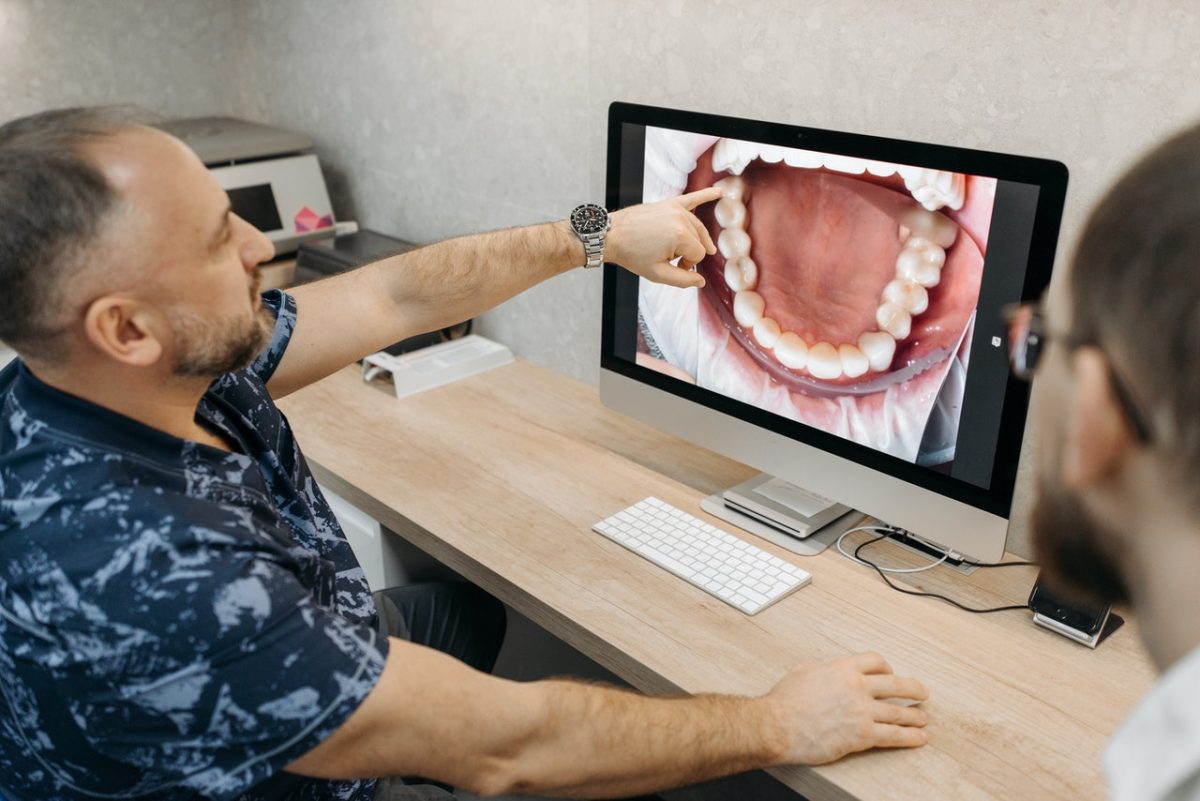
If you don’t have a root canal when you need one, the infection might spread from the tooth to the gums and jawbone. This might result in the loss of the tooth or, in severe situations, a portion of your jaw. Moreover, dental abscesses, joint discomfort, heart attack, stroke, and sepsis are all concerns associated with letting this condition stay unattended.
Ignoring the condition in the belief that the infection will go away on its own is potentially harmful. As frightening as a root canal may seem, the procedure is beneficial and eradicates discomfort and health hazards.
Symptoms of a Root Canal
There are various symptoms that you may need a root canal, including deep ache in your tooth, sudden sensitivity to hot and cold, and tooth sensitivity when chewing.
Tooth pain at night is also a symptom. When your mouth is closed for a long time, the tooth pain intensifies. Although pain can be minor and ignorable, it can be hiding potential root causes to your oral health.
Causes a Root Canal
Here are the causes of a root canal:
1. Tooth Decay
Most root canals are needed because of tooth decay. If a tooth is decayed, the pulp becomes infected.
Tooth decay is a frequent condition with several potential causes. Lack of regular dental care and plaque buildup are two of the most prevalent causes of tooth decay.
Tooth decay is most common in the back teeth. Although there are many treatments for tooth decay, including fillings, crowns, and veneers, a root canal is the most effective solution for decayed teeth.
In addition to treating the decay, the root canal removes the pulp from the cavity and disinfects and seals the tooth.
2. Tooth Fracture
Another common reason why a root canal is needed is when a tooth becomes broken.
If a tooth is compromised by a crack or fracture, the pulp can become infected. The pulp is essentially the living part of the tooth and is responsible for the tooth’s ability to feel.
Bacteria producing decay or a person’s own immune system reacting to damage in the tooth might infect the pulp.
The pulp must be removed during a root canal to give a long-term treatment.
3. Impacted Teeth
Impacted teeth are a common problem for young people. The spaces in the jawbone where teeth should be can be too small for large adult teeth to fit.
As a result, the teeth become impacted by the edges of the jawbone. The pulp can become damaged if the pulp is exposed to the jawbone.
A root canal might be needed to preserve the tooth. The dentist removes the infected pulp, disinfects, and seals the tooth.
Root Canal Procedure
Root canals are typically performed by a dentist, or a specialist called a periodontist.
The process typically takes one to two hours. The first step is numbing the nerve in the tooth with a local anesthetic. Next, the dentist will go through the tooth’s center, removing the pulp with special instruments. The pulp is then removed from the tooth through the hole.
During the procedure, the dentist will do the following:
-
Remove the infected pulp from the tooth.
-
Clean the interior of the tooth to kill bacteria
-
Make a thin hole in the tooth and fill the gap with a filling material.
-
Seal off the nerve with a special filling to prevent infection
Over time, the gum and bone can heal and replace the tooth’s outer layer.
A crown is also necessary after root canal therapy to reinforce a tooth that has been weakened by root canal therapy. It’s possible to lose a tooth without getting a crown. However, having an incomplete set of teeth might cause pain while eating or drinking certain foods.
Conclusion
Whatever the cause of your dental pain, a root canal can be a solution to your dental issues. Do not delay in getting treatment.
If you’re in excruciating pain in your mouth and don’t know what’s causing it, make an appointment with your family dentist.
If you need a root canal dentist in Mansfield, contact us at Ivy Rose DDS. Our office takes pleasure in prioritizing patient attention and comfort. We provide dental services with a personal touch which allows our patients to benefit from better quality treatment, faster recoveries, and lower prices. Book your consultation today!

